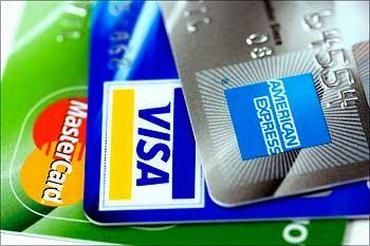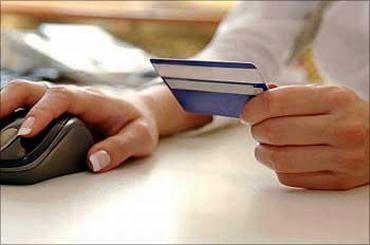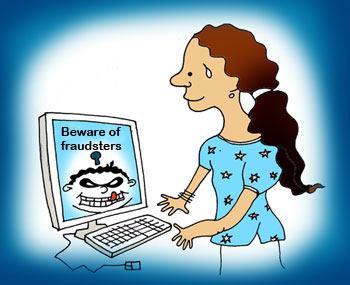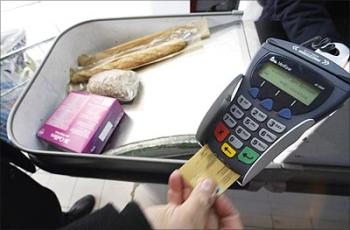10 times you should NOT use your credit card
It’s a world of plastic money. With the swipe of a card, you could shop and dine at the best places or even plan a holiday. But plastic money does not always bring cheer to all. Spenders are often burdened with high bills and accumulated charges.
Here InvestmentYogi explains 10 occasions when credit card usage should be restricted, to avoid the vicious circle of debt.

1. Cash advance for emergencies
Do not use your credit card for cash advances. It sure is convenient to withdraw that readily available cash through your credit card from an ATM or bank, but be aware; the interest charged is around 2.85 per cent per month. With interest being compounded monthly, the effective annual interest rate thus works out to a whopping 38 per cent. The interest on the advanced amount starts accumulating from day one. Also, a flat transaction charge of 2.5 to 3 per cent of the amount withdrawn is levied.
2. Credit card for every-day expenses
Avoid using your credit card as a substitute for cash. When making daily purchases like groceries, food or household requirements, it is better to use cash rather than your card, to prevent overspending.
The convenience of a card over cash does exist but it is equally important to stick to your monthly budget. Try using your debit card instead.

3. While travelling abroad
Restrict your card usage abroad to necessities, such as hotel bill settlement etc. Credit card transactions abroad carry a 3 per cent charge on foreign currency transactions. Further, any ATM cash withdrawal attracts approximately Rs 150 plus service tax, as charges.
International credit cards are billed at the rate of exchange prevailing on the date of purchase. Try opting for a prepaid currency card instead which could work out more cost effective, as the exchange rate applied is as on the date the card has been loaded.
4. Shopping for the sake of reward points
Credit card marketers generally lure buyers with reward points and great deals. Do not use your credit card for the sake of just accumulating reward points as most likely, you would end up with not just high reward points but also a large credit card bill to settle.

5. When you will be unable to pay-up before due date
Banks have an interest-free period of 20-50 days. Avoid using your card, if you are not capable of repaying within this period. For credit card defaults, banks charge a late payment fee between Rs 250 to Rs 600 and an interest of 2.5 per cent to 3 per cent on the outstanding amount, from the date of transaction and not from the due date.
In case, the minimum amount is paid, an interest of around 5 per cent is charged on the remaining outstanding balance.
6. When you will exceed your credit limit
Do not use your credit card if you are close to exceeding your credit limit. Credit limit is the maximum credit card spending allowed by banks. However, at their discretion, many banks permit spending over the original credit limit, at an additional charge of 2.5 per cent of the overdrawn amount.
By restricting spending to 40 per cent of credit limit, it is beneficial not only for one’s overall credit score, but it also brings with it an easier bill to manage.

7. Online shopping at unsecure sites
Professional hackers have malicious intentions of decrypting passwords and credit card information. Do not use your credit card for online shopping if the website is not secure or is unknown.
Look for ‘Verified by VeriSign’ or similar signs to confirm safety of site before keying in sensitive credit card details. Secure sites are denoted with ‘https’ in the address instead of the usual ‘http’.
8. Billing dates of multiple cards
If you have multiple credit cards, do not use the card closer to the billing date but instead spend on the card that still has days left for the billing date. This will ensure you receive a maximum interest free credit period, of around 20 days to pay the bill, after the statement has been generated.

9. Impulsive shopping during discount sales
Discount sales at shopping malls definitely are attractive. However, it pays to make wise decisions before making those purchases with your credit card. Do not spend beyond your repayment capacity and affordability. Differentiate between wants and needs, and exercise responsible usage of your card.
10. Living a borrowed lifestyle
Do not use your credit card to buy things that you can otherwise not afford. It pays to maintain a household budget and stick to it, when spending on your credit card. Piling on unaffordable purchases is one of the quickest ways to end up in long-term debt.
A penny saved is a penny earned
So goes the wise old saying. In today’s times, credit cards have become a necessary evil. Various service agencies such as airlines and hotels seek credit cards for their transactions. One must thus learn to use them properly by maximising free interest periods, avoiding overspending and accumulating dues.
With a little discipline, one can avail the benefits of not carrying large amounts of cash in one’s wallet and make credit cards a great convenience.
Source : Ramya Ramchandran, Investmentyogi


